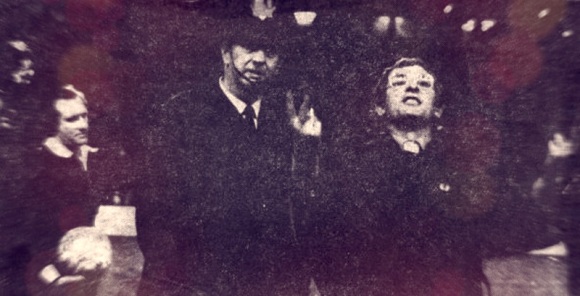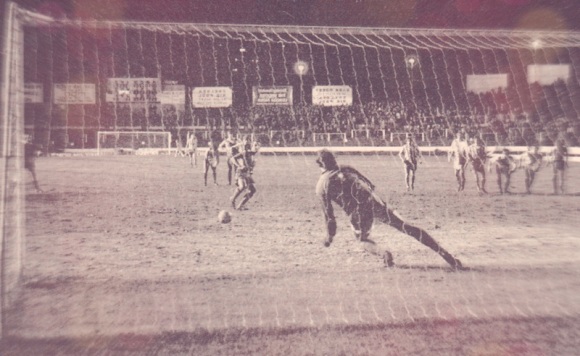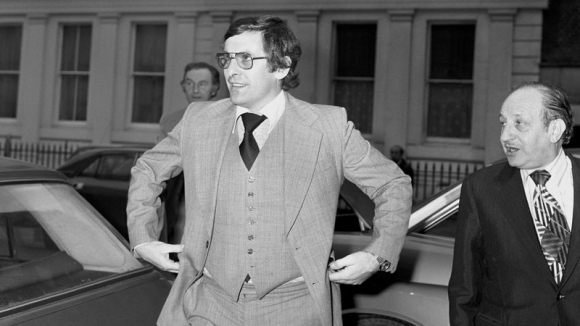You may remember that Football 78 was Panini’s first sticker album covering all the First Division clubs. Strangely, in the coverage of Division Two, Brighton’s team sticker featured the Third Division squad for 1976/77:
In a piece for Shoot! magazine, Alan Mullery gave some insight into how he re-shaped the Albion in his first season at the Goldstone:
I wasn’t in charge at Brighton when they just missed going up last season. But I could still tell everyone was mighty disappointed from the long faces when I took over.
With eight games left – and I was watching Brighton closely last year without, of course, dreaming I’d be their manager within months – Brighton were second and looked certainties to go up. But then they suddenly lost their form at the vital time and won just one of their last eight games. That decided it and they finished fourth, missing promotion by just three points.
The main thing I wanted to know when I took over was how a side could be so good at home and so terrible away. Three of the teams relegated from Division Three last season had better away records so something was wrong somewhere. Brighton’s home record was the best in the Division so we obviously needed some character instilled into the side.
I suppose I changed six positions.
Peter Ward had only played six games last season but he was a regular right from the start this season.
Ian Mellor only played nine League games while Tony Towner was moved farther forward: Steve Piper moved to midfield from the back and I brought in Graham Cross and Chris Cattlin, two highly experienced professionals, to give us some know-how at the back [both were Taylor signings].
I think it has worked well. We are now averaging about a point a game away which is very acceptable. I’m still looking to make the side a better one – just because we’ve been in the top three all season doesn’t mean we’re world-beaters.
We’re not sitting back and saying everything is fine. And there’s no doubt the best time to bring in new players is when you’re at the top of the table, not struggling at the bottom. I want to improve us all-around as a side but I think we’re well on the way to overcoming some of the problems which cost the club promotion last year.
Players like Cattlin, Cross and Brian Horton have the character and fighting instinct to keep working when things are going against them away from home. That’s what I wanted to get into the side and we have benefited from that. Whether we go up is up to us – no one else. One thing is sure – I feel we have more character and a better set up in those crucial away matches this season. And it’s invariably your away results that decide whether you taste success or disappointment.
Brighton had picked up a meagre 14 points away from home in 1975/76 (W4 D6 L13), but turned things around slightly the following campaign with 20 points (W6 D8 L9). It was still not much to shout about. However, allied to the Albion’s astonishing home record where they attained 41 points (W19 D3 L1), and it was enough to seal promotion. No wonder Mullery (below) was so happy:








